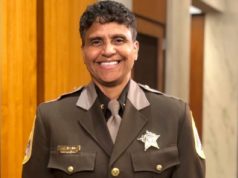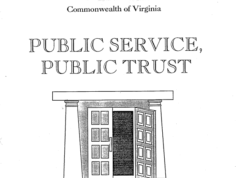 Possibly only because Hannah Graham disappeared did we learn she was a victim of foul play. Statistically, 1,137 other American undergraduates were raped that day. Why aren’t they in the headlines? Bet you if four UVA football players had gone missing in five years, those cases would have been solved.
Possibly only because Hannah Graham disappeared did we learn she was a victim of foul play. Statistically, 1,137 other American undergraduates were raped that day. Why aren’t they in the headlines? Bet you if four UVA football players had gone missing in five years, those cases would have been solved.
There is every disincentive for victims of rape to report their assaults. When they do, they invariably become victimized again. The deck is stacked in favor of assailants. You’d think that in the enlightened environs of college campuses this would not be so. When will the discussion about violence against women change from women avoiding potential danger to men behaving with respect?
There is nothing positive about this to learn from the leadership on Virginia’s campuses. And there seems no accountability for leadership failures. The President of James Madison University (JMU), at a minimum, provided cover for the malfeasance in his administration’s handling the Sarah Butters sexual assault, deflecting blame onto the victim. Governor McAuliffe plastered over the scandal of Title IX investigations across Virginia by appointing a task force to conduct a “top-to-bottom” review of procedures for investigating sexual assaults and resolving complaints at public colleges and universities. You can conduct the tightest investigations in the universe and it won’t prevent the next broken life. Nice try Governor, but this won’t change the climate on campuses. You want Presidents of Virginia’s universities and colleges to be invested? Fire one; start with JMU President Alger who allowed Sarah Butters’ dignity to be trampled upon.
The overuse of football as a metaphor for life can be irritating but sadly in the area of leadership, some college coaches are way ahead of their “bosses.” Last July after Coach Charlie Strong started kicking players off of his team for their behavior toward women, ESPN commentator Rod Gilmore was asked about football players’ violence against women. Gilmore, a former Stanford football player, accomplished attorney, and ESPN analyst praised Strong for doing the right thing.
“He’s one of the few people who takes a strong stand against violence against women. I mean he comes out on day one and says that if you don’t treat women with respect, you cannot play for him. And he’s new at Texas and he backed that up today. But seriously, across the landscape of college football, we don’t take it seriously enough.” – Rod Gilmore on ESPN
Unfortunately, you cannot single out a single Virginia university or college President who has made as dramatic a statement about violence against women or taken as swift and decisive action as that college head coach. The current JMU President had an opportunity to do that and he fumbled (there’s an appropriate football metaphor). So we’ll have to rely upon football coaches and ESPN commentators to frame the discussion.
In July, well before and prophetic of the National Football League’s travails with Ray Rice, Gilmore complained that the leadership in the National Collegiate Athletics Association (NCAA) had been silent about violence against women. Again, he pointed to leadership and called for consistent standards:
“Where is Mark Emmert with the NCAA on this issue? Hasn’t said a peep about violence about women. I would say this, it starts at the NCAA level. There’s no broad policy that addresses this. It is left to the schools. I think the President of the NCAA needs to step out and say something about it. I think the American Federation of college coaches, they need to step out and set a policy about it; make it clear that they condemn this and ask their coaches to have a standard that they are trying to get to deal with this issue.” – Rod Gilmore on ESPN
There is a range of aggression against women that must be addressed: intimidation including harassment and stalking to psychological abuse to physical abuse to sexual assault and rape. At the lower end of that aggression scale there isn’t always a simple “resolution” of the complaint. At the upper end, even if administrators and investigators stop influencing complainants to drop their efforts for justice, defense attorneys will pick up the mantle of the aggressor.
Gilmore pointed to current Stanford Head Coach David Shaw (also making a statement the NFL should have heeded) who called for a standard policy across the board for all schools saying “if you are arrested, you are suspended a number of games; if you commit this sort of crime you are out this number of games. But now it’s left up to the individual schools or in some instances it is the coaches who are the ones who determine any penalty.” This may be one of things that Governor McAuliffe’s task force can accomplish for Virginia: establish consistent policies; ones that don’t allow investigations to drag on and that don’t allow perpetrators to remain on campus semesters after an assault…the way JMU handled Sarah Butters’ assailants. But it is always more complicated than that.
What about incidents that occur before students arrive on campus? Gilmore talked about former Missouri player Dorial Green-Beckham. He was booted out of Missouri after assaulting his girlfriend and ended up at Oklahoma. Oklahoma Head Coach Bob Stoops said, “I believe in second chances.”
Gilmore was speaking of football programs but what about college and university admissions writ large? Who has the discretion to do that balancing act, that weighing of whether a “youthful indiscretion” should keep someone out of college? When do we want to give a second chance? What’s the value of giving a student (often an athlete) a second chance verses the risk to the community and the message that is sent to the public? Will the Governor’s task force address this standard at all?
In another ESPN discussion with three Pacific-12 conference football head coaches, Colorado Coach MacIntyre, somewhat new to his job, like Texas Coach Charlie Strong, was asked how much he could rely on his players to help him with setting the standards and establishing the culture; particularly the seniors. MacIntyre responded that it is essential to get the seniors to buy in. To do this he said, “You meet with them a lot, you get with them a lot and you try to let them get to know you and what your beliefs are and get them to buy into the program.” It should be pointed out that at Texas one of Coach Strong’s biggest allies has been student-athlete Quandre Diggs who has called out some of his teammates for not getting with the program.
This begs a number of questions. What have Virginia university and college administrators done to set standards and influence the culture on campus following the embarrassing episode at JMU? To change the cultural climate and change attitudes? Have the institutions involved upper classmen and women in discussions or has the default been the usual freshman orientation pablum? Since he is the poster child for inadequate enforcement, a good study would be how many group discussions JMU President Alger has had with upperclassmen and women regarding violence against women subsequent to the revelations about the Sarah Butters case. Will Governor McAuliffe’s task force address changing the culture on campuses or simply provide guidelines for reactive enforcement?
Washington State Head Coach Leach asked what more can be done evaluating a young man coming into the program off the field as well as on the field. He talked about doing the best you can finding out about prospects and that it has come to searching social media. “Had a guy one time where it was revealed that he was either a gang guy or interested enough in gangs that we didn’t recruit him.” He argues against changing the recruiting rules to allow earlier commitments; “…the longer you have to recruit him and the better you get to know him the more you’re familiar with guidance counselors, family members, you hope it reveals itself in the recruiting process.”
Now this opens another can of worms. One thing it reveals is that it is very likely that a university or college knows more about students who are athletes than members of the general student body. But anyone who has worked with admissions can tell you that they are not staffed to screen general applicants (even scholars) in the same manner or as thoroughly as coaches may with athletes. And what is the threshold for rejection, the standard of citizenship and behavior expected of incoming students? Again, is this in the terms of reference for the Governor’s task force?
Utah Head Coach Kyle Whittingham attempted to address the issue of prior misbehavior. He said there’s opportunity to give a prospect the chance to grow and mature; maybe grow out of some of habits demonstrated in high school. But he allowed that there is always the issue of weighing that against bringing someone onto campus that may end up causing trouble down the road. Whittingham said that when he visits high schools he even picks a random kid out of the student body and asks about the recruit hoping to get enough good feedback saying a “kid is a good kid who made a mistake and deserves a second chance. It’s relative but you’ve got to do your homework and use your best judgment and make the call…Ultimately the head coach is going to be held accountable for what the players do.”
And what about misbehavior once on campus?
“There is something about the college experience that allows a young man to make a couple of mistakes, to help develop him on the field, character-wise off the field, all those things, that’s part of our job. So, we do assume responsibility for it, but let’s not say he’s a bad kid because he made one mistake. Give us a chance to work with him to help him grow.” – Utah Head Coach Kyle Whittingham on ESPN
But there are mistakes and there are mistakes. Both by athletes and coaches. Look at Florida State University quarterback Jamies Winston who was charged with sexual battery; charges that were not pursued. Then two weeks ago he was disciplined for behavior on campus. His coach, Jimbo Fisher, ignored Winston’s behavior on game day as he created scenes on the field before and during the tepid one game suspension that began as Fisher’s half-game suspension but was extended by the University President.
“I think we need to be clear that a mistake does not mean one free punch. And not one free punch against a woman, certainly. I think that’s the issue of making sure people understand that violence on campus…that should not be within the realm of coaches to … make decisions on. That is beyond the norm. That’s not a mistake that you get to correct. That’s a crime actually.” – Rod Gilmore on ESPN
And based upon the Sarah Butters case, maybe that decision is not within the realm of university or college Presidents either. Paraphrasing Gilmore: If I am the Governor of Virginia, do I want the liability, the exposure placed in the hands of my university or college President who has a dilemma: he or she wants to put the lid on this so it doesn’t affect the institution’s reputation despite putting other kids on campus and the university at risk. It’s a crap shoot. That is the influence of public relations, money and ego. Will Governor McAuliffe’s task force address this by establishing rigorous reporting standards?
The stakes are much clearer today than they were when the Governor established his task force. The task force terms of reference should be revisited and broadened. In the hours that it took to piece this together, more than a half dozen undergraduate women were raped in Virginia. Think about that. Imagine what that number is for all women across Virginia.
Yes there is a problem. But “investigating sexual assaults and resolving complaints at public colleges and universities” isn’t even going to begin to ameliorate it. And waiting almost a year for a nicely bound four-color report on glossy stock before taking effective action is sorely inadequate. Plus it is a larger cultural problem than campuses and students. It appears this crime was committed off-campus and by a non-student.
If Hannah Graham had made it home after whatever happened, we probably would not know her name. Just like the names of 150 or so undergraduate women raped while this was being written. Their perpetrators are hidden in the shadows waiting for their next victims.














